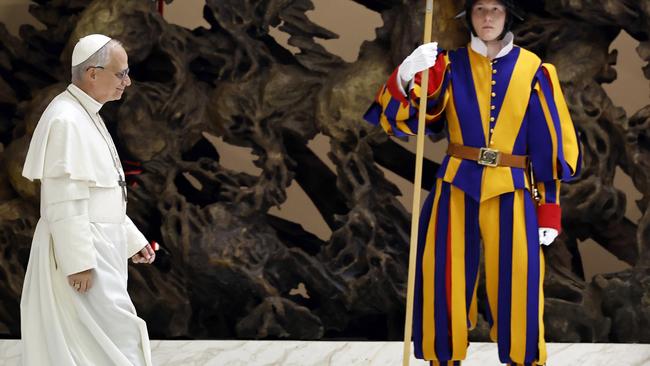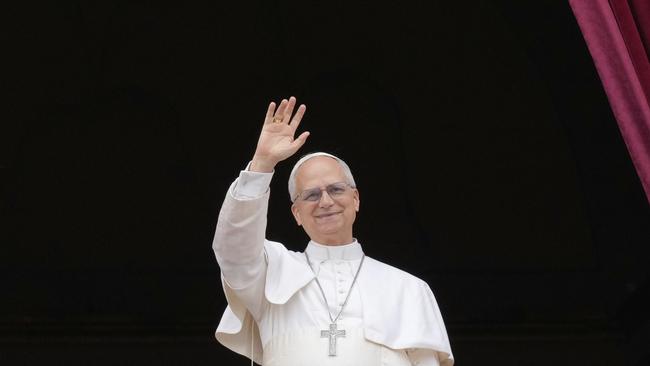Underground church one of Pope Leo’s first big tests

There is no doubt that the usual interest in the identity of a new pope reached unprecedented levels of feverish speculation before the election of a North American as Pope Leo XIV.
So, what are the influences on the new Pope and how do they affect the direction of his papacy?
The accession of a US-born Pope is exciting because he seems to be from our world, he speaks our language.
However, like his papal predecessor Francis, Leo understands the less developed, more tumultuous world of South America.
He served for two decades in Peru, where he became a bishop, and is a Peruvian national. In addition to English, he speaks Italian, French, Portuguese and Spanish – the last two the predominant languages of South America, the biggest group of Catholic nations.
The Pope understands the rich First World and the poorer developing indigenous world.
As soon as I heard what name the Pope had taken, I knew the significance and possible influences of his papacy.
Speculation is rife in the Catholic world that Leo has chosen his name because he wants to be the successor not only of Francis but also of Leo XIII, author of Rerum Novarum (New Things), Rights and Duties of Capital and Labour. That encyclical is regarded as the foundation document of modern Catholic social teaching, especially on the involvement of workers in labour movements and the repercussions for society. It came as labour unions across the world, especially in Europe, were beginning to have a broader effect on society and politics.
But the encyclical had special significance for Australia, coming at the time of Federation when the Australian Labor Party was founded. Catholic workers, members of unions, were influenced by ideas gleaned from Rerum Novarum. Some of these ideas eventually were incorporated into the structure of the new federation with the arbitration system championed by HB Higgins.
But Catholic social teaching is not about political ideology, as is communism or socialism; it is about justice – justice for workers and within society, the bones of the social fabric.
How Leo’s social justice views, so important in developing nations, will order his priorities is not clear. Some commentators, particularly those critical of Francis’s papacy, are concerned about the reform of Vatican bureaucracy and mismanagement of finances. This is a secondary issue, but ultra-conservative critics such as journalist Dan Hitchens, who writes regularly for American Catholic publication First Things, were also critical of Francis’s lack of clarity on doctrinal and faith issues. Hitchens has gone so far as to call Francis’s papacy “a disaster”.
The future of the church rests on the papacy. It is the pope who is the ultimate arbiter of faith and morals.
However, one area that Leo will have to put near the top of his list of priorities is China, where the fundamental clash between political ideology and religion is more dangerous for the Catholic Church than anywhere else. To the consternation of the Chinese Communist Party, the underground church in China, which adheres to the teachings of the faith and the pope, has been experiencing rapid growth and the big question under Leo is what will become of the agreement drawn up by Francis’s secretary of state, Cardinal Pietro Parolin, giving Beijing a say in the appointment of Catholic bishops in China.
No one had more experience working with China than Parolin. He even was rumoured to be China’s pick for pope. Some Catholics want the agreement torn up because in China communist ideology invades every aspect of life and thought, and unlike religion there isn’t a choice. In effect, Chinese communist ideology is like religion, so the state becomes the supreme papal-like arbiter. Papal authority effectively is subsumed to the state. The Chinese government, not the pope, has appointed new bishops, notably in the biggest diocese of Shanghai. This is the problem Leo will have in sustaining any relationship with China.
Unfortunately, the attempt to bring the Chinese underground church in from the cold has backfired. The deal endangers faithful clergy in China. At least 10 bishops are in indefinite detention in China. Nevertheless, the Vatican, like Beijing, insisted the deal was working, and renewed it in October 2024 for another four years.

China then immediately began using the agreement to pressure bishops into joining the government’s Chinese Catholic Patriotic Association, whose members are required to make an anti-Catholic pledge of independence from the pope. However, tearing up the agreement is probably in no one’s interests. The Catholic population is growing, particularly in Shanghai, and the CCP is worried.
There is no doubt Beijing has taken advantage of the agreement and the Catholic Church is suffering for it. Early in May, Hudson Institute Centre for Religious Freedom director Nina Shea wrote in First Things: “A better policy – one that does not share the pope’s important power of appointing Catholic Church leadership with an atheistic government and that supports the perpetuation of the church through a faithful underground – is long overdue.” That is true, but as the Bard said: Don’t hold your breath.
How can Leo deliver such a policy? It will probably take more than a generation and further sustained growth of the Chinese Catholic population to do what needs to be done. Cynics often think the influence of the church is overstated in the modern world, but they should think again. This typically postmodern and narrow Western view of religion in general and Christianity in particular forgets that for 1.4 billion Catholics, and indeed for Christians of all denominations, the biggest religious grouping in the world, political ideologies play second fiddle to faith. It is religion, not ideology, that is the prime motivating force in the world.





